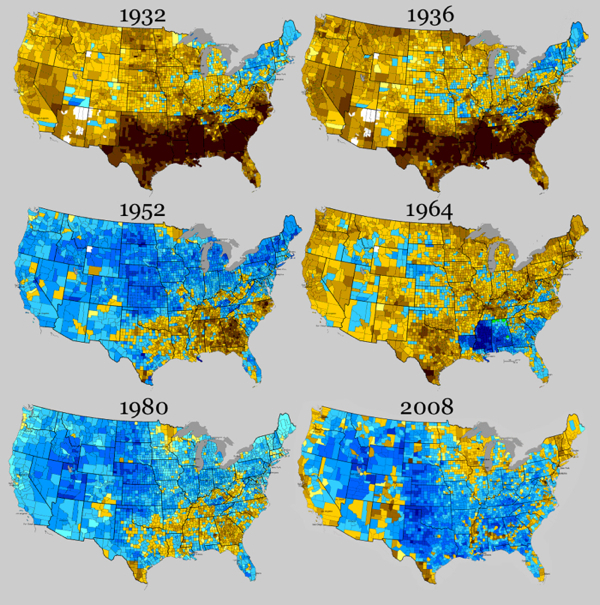Or maybe not. While I dont agree with the conclusion of this article (follow the link if you want to see what that was), it explains the political limits the President and Dems in Congress face better than any explanation I've seen thus far....
... liberal output that has argued that Obama did not go liberal enough. He "opted for an inside game," rather than "extend(ing) those limits" to achieve big, i.e. liberal, goals. If he had done the latter, middle class Americans would have felt the positive benefits already and his poll numbers would not be sliding.
I disagree with this line of thinking. I doubt very much that Obama could have used "the remarkable capacities he displayed during the 2008 campaign" to "inspire and rally Americans," thus "changing that politics." All Presidents face real constraints, and Obama is no different. Acknowledging and identifying them can help us understand where the President has gone wrong.
On the stimulus, he certainly could have gone no bigger than what he did. Reich fails to acknowledge the political fallout from an even larger stimulus package. Deficit spending is a major political issue that has dominated public discussion since the battle between John Adams and Thomas Jefferson. Reich and Paul Krugman might fault Obama for not spending more, but their preferred level of deficit spending is politically untenable. It always has been. Even FDR was consistently worried about deficits. Granted that the American Recovery and Reinvestment Act was not enough economic boost for the price tag, but that does not meant that the price tag could have or should have been higher. Not in this country. See: Perot, H. Ross, peculiar appeal of.
As for health care, Obama's goal was an FDR- or LBJ-style comprehensive, systematic reform of the system. It was to be his Social Security, his Medicare. But Obama simply lacked a sufficiently broad mandate to pull off such a feat. If the Patient Protection and Affordable Care Act seems less august than Social Security and Medicare, that's because Obama's political position upon assuming the office was not as strong as FDR or LBJ's.
To appreciate what I'm talking about, consider the following picture. It compares Obama's election in 2008 (by county) to previous landslides - Roosevelt in 1932 and 1936, Eisenhower in 1952, Johnson in 1964, and Reagan in 1980. These maps come from an excellent French cartographer named Frédéric Salmon, whose work can be accessed here. They follow a different color scheme than the red-blue divide we are used to. In the following maps, Republican counties are in blue - and they become darker blue as the county votes more heavily Republican. Meanwhile, Democratic counties are in yellow - and they move to brown as the county votes more heavily Democratic.

As should be clear, Obama's victory was geographically narrower than Reagan's, LBJ's, Ike's or FDR's. Substantially so. Obama did much more poorly in rural and small town locales. They have a history of progressive/liberal support, but Obama was unable to place himself in the rural progressive tradition of William Jennings Bryan. This makes his coalition the most one-sided of any on the above maps. Most of his political support comes from the big cities and the inner suburbs. The exurbs, small towns, and rural areas generally voted Republican (with notable exceptions in the Upper Midwest).
In fact, if you look at presidential elections going back 100 years, Obama's is the most geographically narrow of any victors except Carter, Kennedy, and Truman....
Voting input inevitably determines policy output, and these maps hold the key to Reich's disappointment with the President. In our system, it's not just the number of votes that matter, but - thanks to Roger Sherman - how they are distributed across the several states.
Obama's urban support base was sufficient for political success in the House, which passed a very liberal health care bill last November. But rural places have greater sway in the Senate - and Obama's weakness in rural America made for a half-dozen skittish Democrats who represent strong McCain states. The evolving thinking on the left - "Obama should have used his campaign-trail magic to change the political dynamic" - is thus totally misguided. The "remarkable capacities he displayed during the 2008 campaign" never persuaded the constituents of the red state Democrats he had to win over. Why should they suddenly start doing so now?
http://www.realclearpolitics.com/horseraceblog/2010/08/what_went_wrong_with_obama.html